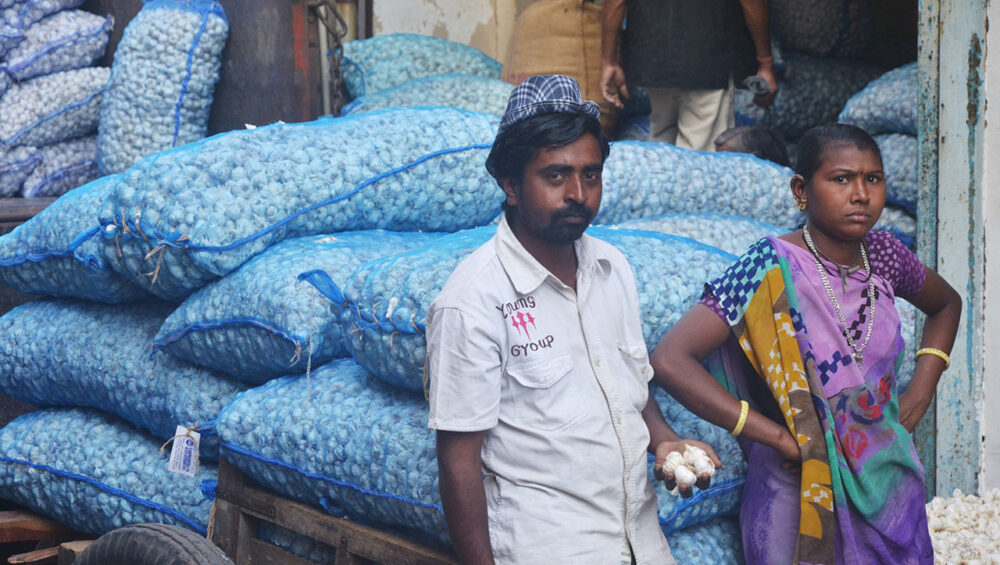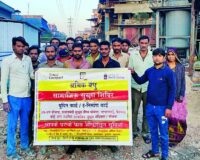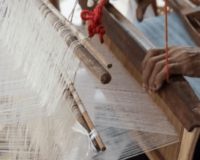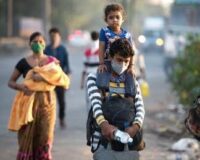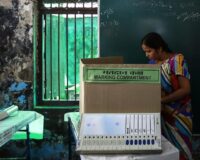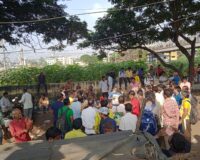In addition to our reports and academic work on the the difficulties faced by workers, and specifically migrant workers; we have also written extensively for news media, websites and blogs in the last two years. Read our reports here and find below a short summary and links to what we wrote in 2020.
We write about microfinance companies in southern Rajasthan harassing Adivasi households to repay loans despite the lockdown, large scale mortality due to COVID, loss of employment and widespread hunger. “The number of companies giving usurious loans to Adivasi families is estimated to have increased by 700 percent just last year.”
We write about the unfair wages given to workers in mask manufacturing units. A drastic shift in the operations in the garment manufacturing units from clothes to masks in the face of the lockdowns have not been accompanied by a shift in the work conditions and wages. The labour value of each mask is Rs. 2 and the market retail price of each mask is Rs. 40.
March
This article talks about the impact of the ill planned lockdown on migrant workers, the struggles they are facing in going home, loss of livelihood, hunger and fear due to the suddenly imposed lockdown among informal workers. This situation has forced many migrants to walk back home. The article suggests immediate measures that can be taken to address this issue – like free meals, temporary shelters, protection against wage denial and wrongful retrenchments, opening up state borders and easing restrictions on entry for workers, and providing access to relief measures for those who are without documents and domicile status in cities. It argues that such measures must be taken before corporate bail-outs begin, to ensure delivery of social security measures is not suspended.
April
This article argues that employers should not treat wages as unavoidable collateral loss during the pandemic, blaming the lockdown measures as a means to deprive workers of their wages. It uses evidences from distress calls received on Aajeevika Bureau’s toll free Labour Line number, where numerous workers shared their stories of arbitrary wage denial. Most of these calls were from daily wage earners and casually employed workers. In an PIL, a Supreme Court bench observed that wage payments are not the prerogative of the government, as adequate shelter and food arrangements had been put in place. This defied logic and ample evidence that workers faced a severe livelihood crisis and were abandoned in their time of need by their employers. Wage denial, wage loss, unrealistically low wages all call for a commitment to treating wages and work as an inviolable right. The article also argues for setting up of fast-track wage and employment mediation cells and courts in all major cities and industrial areas.
May
This article highlights the plight of migrant workers during the first lockdown and argues that the workers were not failed by Covid but by the existing long standing vulnerabilities and the lockdown simply pushed them over. Despite building the city, migrant workers have always been on its margins- invisible and isolated. The author also highlights the exclusionary biases of policies which require workers to prove their domicile status to be eligible for various entitlements keeping migrant workers away from a wide range of benefits and schemes. The need of the hour is to enumerate and recognise the workers and reward them with their rights to the city.
July
This article is an in-depth examination of the Khairani Road industrial area. The authors highlight the density of the shops and the complex supply chain in this area, as well as working conditions. Employers use the proximity of the shops and the workers living quarters to save transport costs and keep the informal assembly lines running smoothly. The authors have interviewed several business owners, who are all in deep debt due to loss of income during the lockdown. Reviving these businesses is met with several difficulties. In the absence of state assistance, they have taken loans to pay workers to ensure the workers return to work for them. The authors argue for transparent supply chains, state monitoring and redistribution of profits to the lowest level.
Another colleague calls on the government to revamp strategies to house migrant workers in the aftermath of the lockdown, since many were rendered unemployed and homeless during the first wave. The existing shelters were inadequate to house the homeless. The problems of the migrant workers were clubbed with those of homeless persons, obfuscating the issues they face. The author also argues that the needs of the migrant workers were reduced to lack of food and shelter, without investigating the real cause of their plight: loss of livelihood. The author writes on the importance of legitimizing the informal settlements to provide access to civic amenities, frame housing policies for circular migrants upon investigation of the needs of the workers and re-examine the existing housing policies.
September
This article highlights the issues faced by tribals in finding work in their villages, forcing them to migrate to the cities for work. The first lockdown forced them back home on foot, but the loss of livelihood brought them back to the city. This phenomenon is illustrated with the examples of villagers from rural Udaipur, where poor employment opportunities, declining agriculture and lack of adequate infrastructure forces people to migrate to Gujarat. The return of workers to villages also highlighted the need for examining the status of the MGNREGS. The author argues that migration on the Gujarat-south Rajasthan corridor will be extremely different in the near future due to variation in the kind of opportunities that will be available to the people in the aftermath of the lockdown. This means that finding work and steady wages will be harder as they migrate back to cities.
This article sheds light on the condition of workers after returning to their villages during the first lockdown period. The story of Bhura Ram from Kanela, rural Udaipur and others in his village is one of the many incidences of villagers coming together to restore village commons to ensure drinking water access to all in the absence of state assistance. The author also details several instances of collective action to hold the administration accountable for providing permanent solutions to the water woes of several hamlets in the Udaipur district, which fell on deaf ears. This forced the villagers to deepen the wells themselves with some financial support from Aajeevika Bureau. This was replicated by many adjoining villages as well.
The authors of the article begin by detailing the conditions of workers in the aftermath of Covid and the immediate relief measures like Shramik trains and temporary ration supplies, while demands for structural systemic change remain unmet. The introduction of the new labour codes weakens legal protection and puts the workers at grave risk because of migration and informality. The authors argue that the Occupational Safety, Health and Working Conditions Code does not address the concerns of intra-state migrants. They observe that suspension of labour laws in the guise of Ease of Doing Business is also a cause for concern. The Code on Social Security also raises alarm bells because it does not do much for the informal sector. By destroying the labour protections, the government has pushed the workers into further misery, the authors conclude.
November
This article highlights the migration of Adivasi workers back to cities in the absence of employment in villages. The author argues that along with anxieties about contracting Covid, the workers are more worried about the isolation they experience in the city due to poor working conditions, state apathy and the uncertainty they face. The author also refers to an Aajeevika Bureau survey with 426 migrant workers from five tribal districts in southern Rajasthan. The lack of access to social network, state neglect and decreased food consumption were some of the pressing concerns that arose from this survey.
December
The author begins by illustrating the example of eight underage boys from Gogunda, Udaipur taken to Gujarat to work. They are underpaid and exploited but manage to flee the contractors and get back home after much difficulty with the help of Aajeevika. Extreme vulnerability forces children into work, alongwith increased drop out rates, and low number of schools in rural Rajasthan. Moving is a compulsion for them because the city has employment opportunities.
This compilation has been prepared by T Lalita, who currently interns at Aajeevika Bureau‘s Bangalore office.

